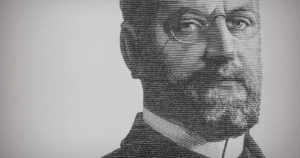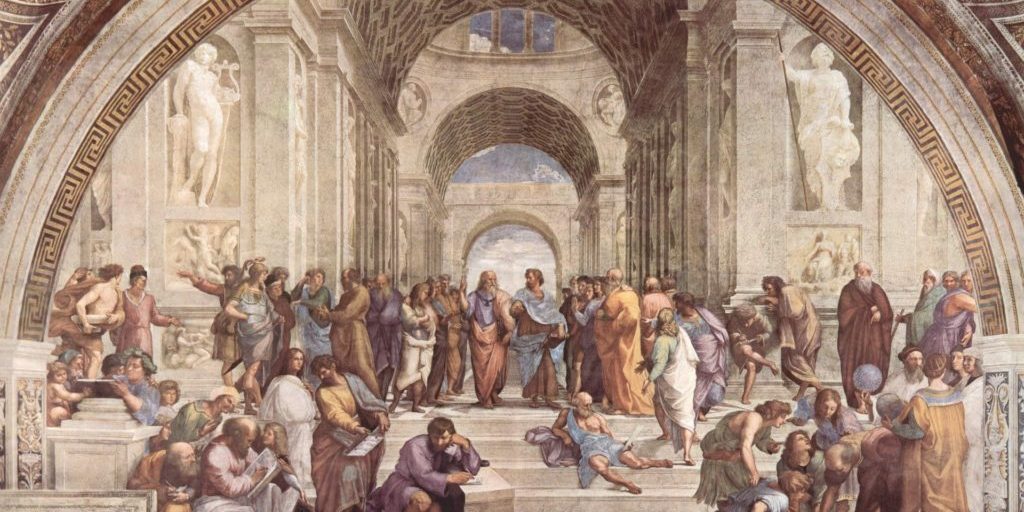
Credo Fellow Highlight: Christopher Holmes
Credo is Latin for “I believe.” From the creeds of the Church Fathers to the confessions of the Reformation, Christians have been faithful to confess the faith once for all delivered to the saints. Credo retrieves this classical and reformational heritage in order to create and cultivate theological renewal today. By bridging the gap between church and academy, Credo helps churchgoers, pastors, and students alike learn theology and retrieve orthodoxy for the sake of Christian fidelity today.
However, a team effort is required if the church and academy alike are to remain faithful to this orthodox faith, a team that spans denominations and brings together some of today’s most outstanding theologians, pastors, and writers. I am pleased to welcome the Credo Fellows, each of which embodies the spirit of Credo in their own teaching and writing ministries. Each week, we are highlighting one of the new fellows, allowing you to hear more about their passions, from the halls of patristic and medieval history to the corridors of dogmatics and classical literature. But today I have the privilege of welcoming a new Credo Fellow, Christopher Holmes, one of today’s best theological minds.
Matthew Barrett, executive editor
C hristopher Holmes is associate professor in systematic theology at the University of Otago in New Zealand and he is also an Anglican priest. He studied systematic theology, completing a ThD on the doctrine of God’s perfections in Karl Barth and two of his leading German speaking interpreters, Eberhard Jüngel and Wolf Krötke. Chris has continuing research interests in a variety of Christian doctrines, especially the doctrine of God and the doctrine of creation. He carries out this work in dialogue with a wide variety of thinkers from the classical Christian tradition, all in a way that is anchored in Holy Scripture and with a view to edifying the Christian community. Here are some of his most recent publications:
hristopher Holmes is associate professor in systematic theology at the University of Otago in New Zealand and he is also an Anglican priest. He studied systematic theology, completing a ThD on the doctrine of God’s perfections in Karl Barth and two of his leading German speaking interpreters, Eberhard Jüngel and Wolf Krötke. Chris has continuing research interests in a variety of Christian doctrines, especially the doctrine of God and the doctrine of creation. He carries out this work in dialogue with a wide variety of thinkers from the classical Christian tradition, all in a way that is anchored in Holy Scripture and with a view to edifying the Christian community. Here are some of his most recent publications:
Books
R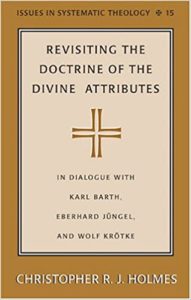 evisiting the Doctrine of the Divine Attributes: In Dialogue with Karl Barth, Eberhard Jüngel, and Wolf Krötke (Peter Lang, 2007)
evisiting the Doctrine of the Divine Attributes: In Dialogue with Karl Barth, Eberhard Jüngel, and Wolf Krötke (Peter Lang, 2007)
There is growing recognition that an account of God’s attributes is central to the church’s proclamation. This study presents three probing twentieth-century accounts – those of Karl Barth, Eberhard Jüngel, and Wolf Krötke – each of whom reformulated the classical shape of the doctrine. Giving particular attention to the divine glory, the case is made that God, rather than being an unthinkable and unspeakable horizon, is the glorious One, whose glory is his self-communication and the unifying horizon of attribution.
E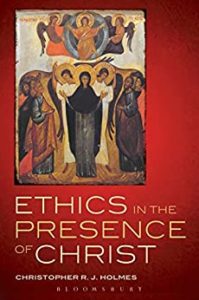 thics in the Presence of Christ (T&T Clark, 2012)
thics in the Presence of Christ (T&T Clark, 2012)
By casting the identity of Christ as the One-Who-Is-Present, Holmes concentrates on how Christ ministers his power, truth, and love in the Spirit for the sake of the transformation of human life.
As present, Christ’s work is both finished and unfinished, complete and open-ended; as endlessly contemporary, it is constitutive of reality and so (re-)shapes the ethical landscape and the moral life. In revisiting the doctrine of Christ’s contemporaneity with its ethical implications firmly in view, Holmes’s work fills a lacuna in the contemporary literature on Christian ethics. In conversation with John’s Gospel, the priority of Christology comes to drive the very shape of moral questions for today. Here the compelling task of ethics is a matter ofbecoming aligned with and transparent to Christ’s own presence and so to Christ’s work of making all things new.
The Holy Spirit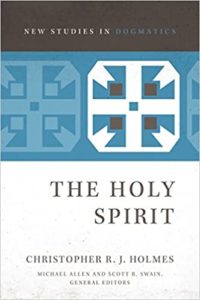 (Zondervan, 2015)
(Zondervan, 2015)
Who is the Holy Spirit and how does the Spirit come to be in relation to the Father and the Son? What is the mission of the Spirit and where does it come from? Chris Holmes takes up the questions surrounding the Spirit’s procession and mission with the help of three of the church’s greatest teachers—Augustine, Thomas Aquinas, and Karl Barth.
Drawing on their engagements with the Fourth Gospel, Holmes presents an account of the Spirit’s identity, origin, and acts, to show how the acts of the Spirit derive from the Spirit’s life in relation to Father and Son—and the extent to which the Spirit’s mission testifies to the Spirit’s origin.
Holmes presents a way forward for pneumatology. Housed within the doctrine of the Trinity, pneumatology’s joyful task is to describe the Spirit’s acts among us in light of their source in the Spirit’s acts in God. The end of this inquiry is our beatitude—knowledge of the Trinity that yields to love of the Trinity.
The Lord is Good: Seeking the God of the Psalter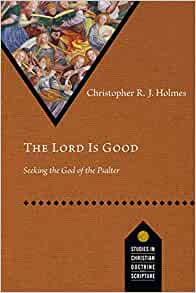 (IVP Academic, 2018)
(IVP Academic, 2018)
“Taste and see that the Lord is good,” the Psalmist writes (Ps 34:8). And to those who called him good, Jesus said, “No one is good―except God alone” (Mk 10:18). In this volume in IVP Academic’s Studies in Christian Doctrine and Scripture series, Christopher R. J. Holmes explores the divine attribute of God’s goodness through a theological interpretation of the Psalter that engages with the church’s rich tradition, including Augustine and Barth, but especially Aquinas. He contends that in the very depths of God’s being, God is goodness itself and that goodness is preeminent among the divine attributes. Leading us in this journey through the Psalms and the church’s tradition, Holmes helps us to understand what it means to make that simple affirmation: God is good.
A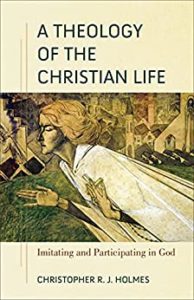 Theology of the Christian Life: Imitating and Participating in God (Baker Academic, 2021).
Theology of the Christian Life: Imitating and Participating in God (Baker Academic, 2021).
This book gets at the heart of the Christian life by considering some of the great truths of God’s existence. Christopher Holmes, an expert in contemporary theology, engages with the church fathers along with Augustine and Aquinas to offer a rich, accessible account of the triune God and the divine perfections. Holmes shows how we share in the life of God through imitation and participation and how the doctrines of the triune God and the divine attributes shape our understanding of the Christian life. Throughout, Holmes demonstrates the importance of theology for Christian faith and practice.
Podcast
Where is God’s Goodness in a Hell-bent World? Christopher Holmes and Matthew Barrett
Articles
Videos
https://youtu.be/BntKSwEzXe4
